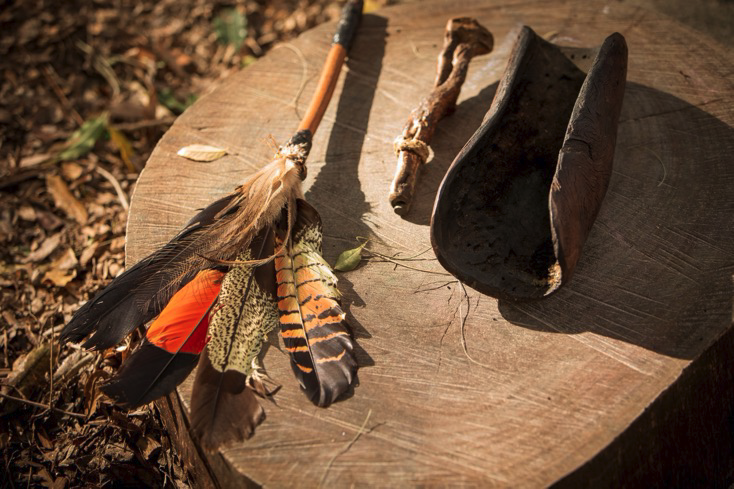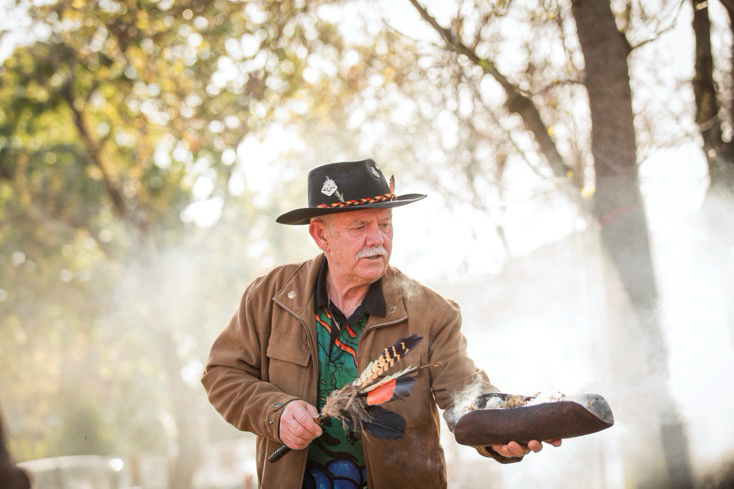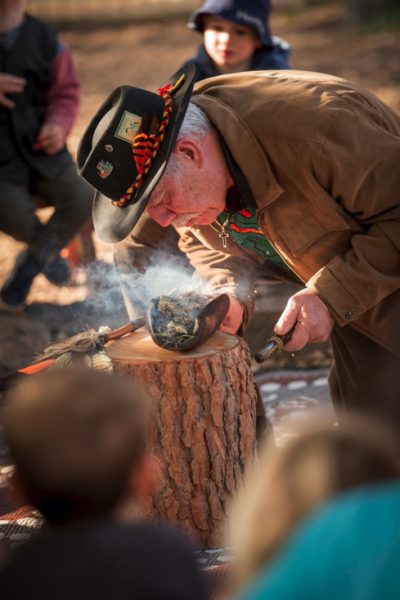Reflections: Nurturing A Love Of Cultures

Nurturing A Love Of Cultures
By Renee Kemble. Rachel J, Kuku–Yalanji and Torres Strait Islander Woman, Gowrie South Australia
Gowrie SA’s vision for Reconciliation is an Australia where Aboriginal and Torres Strait Islander peoples and all other Australians participate in an equitable and fair society. Since our first Reconciliation Action Plan in 2011, our children’s program connects strongly with learning about Aboriginal and Torres Strait Islander peoples and histories.
We recognise that the fostering of knowledge, respect for and pride in First Nations peoples, cultures and contributions in early childhood education offers pathways towards generational social change. This contributes to better life outcomes for all young children. A core part of our philosophy in all of our programs is building respectful, reciprocal relationships. A commitment in our stretch RAP is that we continue to acknowledge and work with Kaurna Elders and community members, recognising the responsibilities to nurture relationships to build stronger communication, engagement and partnership. We value the contribution Elders bring to our children’s program and understand the critical role they play in a reconciled future.
Since beginning our journey in 2011, we have committed to engaging with and developing authentic relationships with key community Elders, understanding the importance of sustaining these partnerships to truly embed respect and appreciation of culture into our organisation. Doing this, works towards creating a culturally safe environment for Aboriginal and Torres Strait Islander Peoples.
This article endeavors to give an example of how inviting our Elders to engage in the children’s program strengthens both child and educator understandings of Aboriginal Peoples and cultures. This ultimately nurtures a love for cultures, positioning future generations as informed and active citizens in human rights and Reconciliation.
Uncle Ivan-Tiwi Copley (OAM, JP) a Peramangk and Kaurna man, continues to make significant contributions to our learning and has deepened our spiritual and emotional connections to culture and history. He honours us with his knowledge by spending time in our programs with children and educators, linking culture to the children’s current research projects.
Recently Uncle Ivan was invited to spend time in an infant toddler program to support their exploration into real life tools. The morning began with a shared morning tea of lemon myrtle scones and Uncle’s homemade quandong jam. Uncle Ivan led a Welcome to Country and then listened to the Acknowledgement of Country from the children which has been embedded in the daily ritual of our programs. We then spent time learning how to grind different ochre minerals into a powder using cultural tools such as a coolamon and grinding stones. The children learnt that this ochre powder when mixed with water can be made into a paint used for various traditional cultural practices. A representation of the learning was created on canvas by the children.
Uncle Ivan then joined the Kindergarten educators and children for their morning meeting. Educators consulted with Uncle to ask if he wanted to lead a Welcome to Country or join the children for their Acknowledgement of Country. Uncle chose to have the children share their Acknowledgment, and he sat with a smile as he listened to their words.
During last year’s Children’s Day celebrations, we were honoured to have Uncle Ivan lead a Smoking Ceremony. The Ceremony sparked a curiosity for children into smoke and fire, inspiring educators to intentionally navigate the research towards cultural burning. In preparation for Uncle’s visit children and educators posed deeper questions using photos of Uncle Ivan to encourage their thinking. Educators then collated these questions to create an opportunity for Uncle to share his knowledge and to inform their research.

Children’s questions…
- Why does he have a drawing feather?
- Why does he have a feather? How does he start a fire?
- How do they start back burns?
- Why do you back burn?
- Why does fire make smoke?
- What is Uncle Ivan doing with that?
- Harvester the fire.
- Why they burn the tree?
- Bushfires?
- How do we get the fire away from water?
- How does the fire get here?
- What are the feathers?
- Uncle Ivan spread the fire and smoke, how did he?
- How does Uncle use fire and smoke?
- Dad set a fire.

The children then joined Uncle in the garden. He spoke of special plants; bulrush and saltbush, and a fungi that grows high up the gum tree, that once alight, can last up to 24 hours. The fungi can be carried in a Coolamon from campsite to campsite. A flint was used to light the grass and produce fire and smoke. Uncle used this moment to share his knowledge on how to be safe with fire. Uncle Ivan’s knowledge sharing is now being extended in the program by children working on a benefit risk assessment for fire safety, with the intention to use fire as a learning opportunity in future planning.
As an organisation we understand that the journey of Reconciliation is always on a continuum of learning, unlearning and relearning. We draw upon critically reflective practice to think deeply about ways in which we can strengthen our relationships, take action and develop educator’s capacities to implement culturally responsive pedagogy, embedding Aboriginal and Torres Strait Islander histories, cultures and language into the children’s programs.
As educators we learn from children’s innate curiosity to develop a love for cultures. Moving forward, our challenge is to re-engage with their and our own curiosity for this work, feeling comfortable with being uncomfortable, becoming true advocates for a reconciled Australia. We draw upon critically reflective practice to think deeply about ways in which we can strengthen our relationships and take action.
At Gowrie SA we acknowledge that during our work over the last 11 years, we have reflected on the barriers to embedding a spiritual, respectful and emotional connection to culture in our programs. Our next powerful step is to further foster the relationships and partnerships with Aboriginal and Torres Strait Islander Peoples, strengthening the already existent love of cultures across all generations. We will continue to respectfully engage community Elders to share their history, stories and culture, linking their knowledge to our current research projects, as an opportunity to enrich our programs.
Reference List
Gowrie S.A, Stretch, Reconciliation Action Plan, July 2020-July 2023. https://gowriesa.org.au/uploads/ GowrieSA_StretchRecActionPlan_July2020_23.pdf
Nurragunnawali https://www.narragunnawali.org.au/
Reconciliation Australia https://www.reconciliation.org.au/


